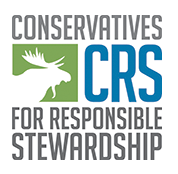CLIMATE SCIENCE BASICS
Scientific understanding, whether it biology or climate science, represents a continuous learning process, and as such, there will always be new discoveries that improve our knowledge and instruct our actions. Just as medical researchers understand cancer better today than they did 30 or 100 years ago, climate scientists understand our atmosphere and climate better.
However, the foundations of our understanding of climate change, the greenhouse effect and the carbon cycle, have been pretty well understood for over a century.
The Greenhouse Effect
The earth’s atmosphere is unique among all other planets. It acts as an insulating blanket, trapping just enough energy to create a climate that is hospitable to life. That is because the atmosphere contains small amounts of very powerful gases that absorb, store and re-radiate heat energy from the earth, heat that would otherwise escape to space. These gases, which include water vapor, carbon dioxide, methane, ozone, and nitrous oxide, are referred to as “greenhouse” or “heat-trapping” gases.
When levels of heat-trapping gases in the atmosphere increase, they trap more heat from the earth, making the earth warmer. And that’s what’s happening today.
The Carbon Cycle
The carbon cycle is the miraculous process by which the earth maintains the proper balance of carbon dioxide in our atmosphere required for sustaining life.
Through this process carbon, an essential component of virtually all life on earth, is continuously cycled and reused. Trees and other plants, as well as the ocean, are designed to remove carbon dioxide from the atmosphere. That carbon then helps support life by being transferred to people, animals and the soil.
The carbon cycle perfectly balances the amounts of carbon stored in the atmosphere, ocean, and deep in the earth’s crust as coal, oil, and natural gas. But what happens when something alters that balance?
Mankind’s Role
When we extract oil and coal from deep within the earth’s crust and burn it in ever increasing quantities, we throw a monkey wrench into the carbon cycle. We are releasing that stored carbon from bygone eras back into the atmosphere as carbon dioxide over much shorter time scales than would naturally occur–years, rather than millennia. That upsets the carbon balance and causes that excess carbon dioxide to build up in the atmosphere, where it begins to trap too much of the earth’s heat.
The fundamentals of this are well established and there is no legitimate reason to doubt it. Even the inventor of the telephone, Alexander Graham Bell, back in 1917 recognized that the unchecked burning of fossil fuels “would have a sort of greenhouse effect” and noted “The net result is the greenhouse becomes a sort of hot-house.”
In the 19th century, before the Industrial Revolution, carbon dioxide levels in the atmosphere averaged about 280 parts per million (ppm). Scientist know this from testing air from that period (and prior ones) that is trapped in Greenland and Antarctic ice. Today, carbon dioxide levels in our atmosphere have risen to 400 ppm, a level never before experienced in the history of human civilization on this planet.
Less clear is exactly what all of the impacts of the warming will be. The planet is warming, but how will that affect our health, our agriculture, our water resources, and our economic well-being? Sea levels are rising: but how fast and how much, and what does that mean for our coastal cities? The ocean will become more acidic: how will that impact sea life? Many types of extreme weather are becoming more frequent and/or more severe, what does that mean in terms of heat waves, storms, droughts, and hurricanes?
Scientists do not know everything there is to know about our climate, nor can they be 100% sure of the impacts that will result from altering the carbon balance of our planet. But it is safe to say that the majority of these impacts will not be good. Failing to act on the extensive amount of knowledge that does exist would be folly.
Ronald Reagan liked to refer to the earth as “this magical planet God gave us.” It is indeed magical, but he also understood that we are its caretakers and have a vital stewardship obligation. He said:
“This is what we leave to our children. And our great moral responsibility is to leave it to them either as we found it or better than we found it.”

